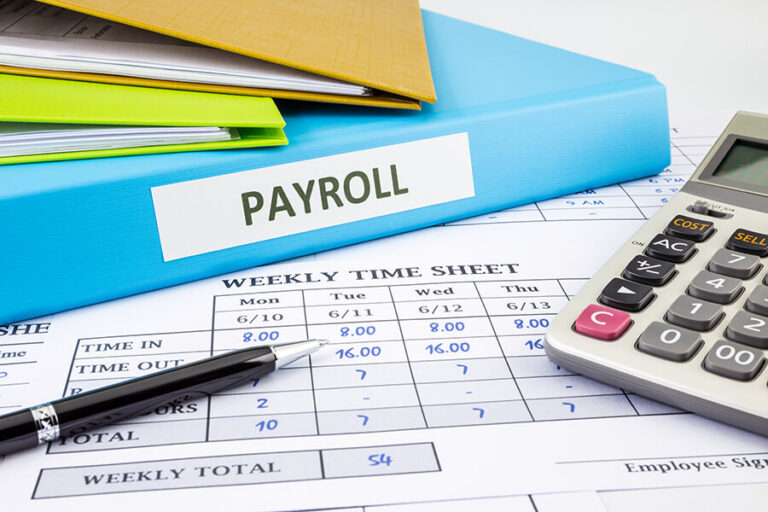Who is Responsible For Employment Taxes?
July 9, 2019

Taxes. Is there anyone besides accountants who enjoy them? Probably not, and when you are a business owner, they are just one more responsibility to add to your ever-growing list. Below, you will find some helpful information relating to where your tax responsibility lies as a business owner with employees.
Whose Responsibility is it to Pay Employer Taxes?
Simply put, the responsibility of paying taxes falls both to you and to your employees in some form. However, as an employer, you do have the responsibility of reporting income and having employment taxes withheld on your employee’s. This will then be filed with the Employer’s Quarterly Federal Tax Return, known as form 941. You then must deposit taxes into an authorized financial institution or the bank per the Federal Tax Deposit Requirements. You are also responsible for filing a FICA (more below) annually and then depositing those taxes. The Internal Revenue Service (IRS) has a section of information pertaining to this subject you can access here. If you fail to comply with the laws as they relate to employment tax, you can be subject to civil or even criminal sanctions.
Payroll Taxes, They Are Your Responsibility
When it comes to payroll taxes, the Federal Payroll Tax responsibility falls on you as the employer. This means you are responsible for withholding some of your employee’s compensation and as well as paying your employer’s contribution towards Medicare and Social Security taxes under the Federal Insurance Contributions Act, known simply as FICA. Although you have many responsibilities when it comes to payroll, perhaps the most pressing is adhering to FICA and other tax laws. Visit here to learn more about FICA.
What Are Payroll Taxes?
To be sure we are on the same page, look over what is considered a “payroll” tax:
- Local, state and federal income taxes.
- FICA taxes.
- Unemployment taxes that is based off your employee’s income along with other factors.
- Federal and state worker’s compensation funds. This is also based on your employee’s income as well as various factors, such as the risk of injury in their specific job.
More About Your Responsibility in Payroll Taxes
If you have employees, not only will you be responsible for FICA withholdings as mentioned above, but you will also be expected to withhold and report payroll taxes within various other categories of law. In layman’s terms, the following is a breakdown of these responsibilities:
- Collect Information: Your first task is to get certain information from your employee, which you will use to create their W2 form. This will allow you to set up federal withholdings from your employee’s check. You are not responsible for finding the “right” amount to withhold. Some employees prefer more money is withheld, so they can get a good tax return, while others prefer to cut it close to even. This is not your responsibility to determine but getting the information and passing that along is your job.
- Take Out Taxes: Your next responsibility regarding payroll taxes is to withhold the right amount of taxes from your employee’s checks for local, state and federal income. FICA, as mentioned above, is slightly different as it is paid by both you and your employee. This type of tax is only based on what your employee makes and is then directly tied to them. Income tax withholding amounts are often determined by the employee, but FICA taxes are set, based on gross income amounts.
- Set Funds Aside: When you pull money out of your employee’s checks for taxes, you then have to set these funds aside until it’s time to pay them. This type of fund is called trust fund taxes. It basically means you hold the funds in trust until time to pay them.
- Pay Taxes: Now the fun part, not! Time to pay the various agencies that are owed tax money from both you an employer and your employees. You will pay the IRS, Social Security, and Medicare withholdings and then also pay FICA taxes.
- Report Any Tax Owed: You fill out a form 940 for unemployment tax and/or a form 941 for payroll taxes on employees.
- Provide Additional Reports: In addition, you might also need to provide reports to local, state and federal agencies as required by law. For example, any new employees must be reported to obtain employment status.
Tips For Making Sure You Stay on Top of Your Tax Obligations
Of course, we all would love to forgo paying taxes. They just aren’t any fun. However, they are legally required and not paying what you owe and ensuring your employees are set us as well can mean some serious legal ramifications. Therefore, you want to make sure you stay on top of this obligation as a business owner. The following are some tips to help you do just that:
- Automate The Process: One way to ensure you never forget to pull funds out when you should and then send them to your tax fund is to set up your payroll to do it automatically. Then set yourself a reminder to pay the taxes when owed.
- Partner With a Professional: As you have learned, taxes are no easy matter. They are downright confusing and making even an honest mistake can still land you in some very hot water. Therefore, perhaps the best way to deal with your responsibility as a business owner over employer taxes is to partner with a Professional Employer Organization (PEO) like Consolidated Personnel Services. By joining a service like this, you are relieved of the headache and responsibility that comes with managing employment taxes. Contact us today to learn more about how we can help relieve the stress over employment taxes and get you back to focusing on what’s important, running your business.
Hear From Our Customers
Read what our clients say about our Payroll and Human Resource services.
